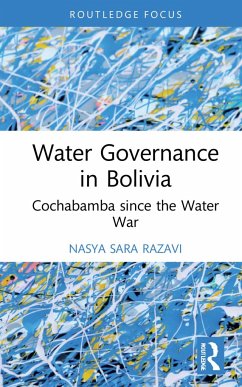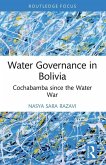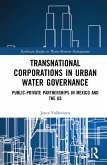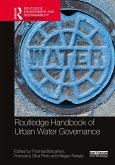This book examines water remunicipalization in Cochabamba since the Water War, offering innovative methodological and theoretical conceptualizations of what it means to be "public," helping to move debates on water services beyond the paralyzing binary of public versus private with a focus on the contested terrain of community engagement around water services.
The Cochabamba Water War of 2000 brought together city residents of all stripes to mobilize against water privatization and gain back public control of the city's water utility. This event catapulted anti-privatization movements around the world, but two decades later, the water movement's vision of democratic water provision remains largely unfulfilled and the city suffers from a protracted water crisis. Building a typology of participation, this book explores the difficulty in rebuilding a strong public water service in Cochabamba by analyzing the different, and often incompatible, understandings and interpretations of social control and public participation. Applying this framework to the Bolivian context, and more specifically to the water and sanitation sector in Cochabamba, the book uncovers whose interests are served, and which groups are included or excluded from decision-making and access to water. This exercise illustrates how, in their implementation, participatory practices are not linear and can be distorted or appropriated towards different ends.
This book will be of great interest to students and scholars of water governance, natural resource management, public policy, social movements and Latin American studies.
The Cochabamba Water War of 2000 brought together city residents of all stripes to mobilize against water privatization and gain back public control of the city's water utility. This event catapulted anti-privatization movements around the world, but two decades later, the water movement's vision of democratic water provision remains largely unfulfilled and the city suffers from a protracted water crisis. Building a typology of participation, this book explores the difficulty in rebuilding a strong public water service in Cochabamba by analyzing the different, and often incompatible, understandings and interpretations of social control and public participation. Applying this framework to the Bolivian context, and more specifically to the water and sanitation sector in Cochabamba, the book uncovers whose interests are served, and which groups are included or excluded from decision-making and access to water. This exercise illustrates how, in their implementation, participatory practices are not linear and can be distorted or appropriated towards different ends.
This book will be of great interest to students and scholars of water governance, natural resource management, public policy, social movements and Latin American studies.
"Much has been written about the so-called water war that shook the city of Cochabamba in April, 2000. In this carefully researched book, Nasya Razavi asks why, two decades on, the promise of the iconic anti-privatization protests remains unfulfilled. Razavi's insightful analysis begins where the protests left off: the messy, indeterminate process of 'remunicipalizing' the city's water service. This is a nuanced and detailed examination of urban water governance that focuses on how participatory governance works - or doesn't - in practice. This book is a must read for anyone who cares about the right to water and how to make it a reality." - Tom Perreault, DellPlain Professor of Latin American Geography, Syracuse University, U.S.A.
"When the Water Wars of Bolivia subsided 20 years ago much of the world stopped watching, but internal struggles for equitable public water services continued. Two decades on, however, water remains highly stratified along class, racial and gendered lines. With a focus on Cochabamba, Razavi convincingly demonstrates how much of this outcome is linked to weak mechanisms of public involvement in decision making, traced in part to fundamental divides among key actors over the very meaning of participation. Employing a novel conceptual framework, Razavi throws critical but sympathetic light on the importance of meaningful civic engagement and how the demand for change continues to animate water movements in the country". - David A McDonald, Professor of Global Development Studies, Queen's University, Canada
"When the Water Wars of Bolivia subsided 20 years ago much of the world stopped watching, but internal struggles for equitable public water services continued. Two decades on, however, water remains highly stratified along class, racial and gendered lines. With a focus on Cochabamba, Razavi convincingly demonstrates how much of this outcome is linked to weak mechanisms of public involvement in decision making, traced in part to fundamental divides among key actors over the very meaning of participation. Employing a novel conceptual framework, Razavi throws critical but sympathetic light on the importance of meaningful civic engagement and how the demand for change continues to animate water movements in the country". - David A McDonald, Professor of Global Development Studies, Queen's University, Canada








